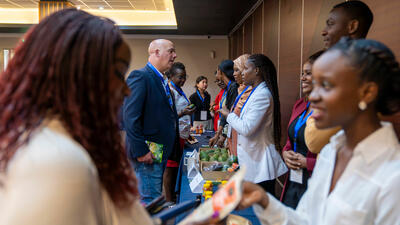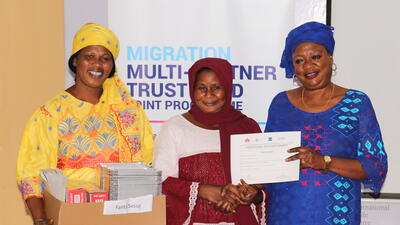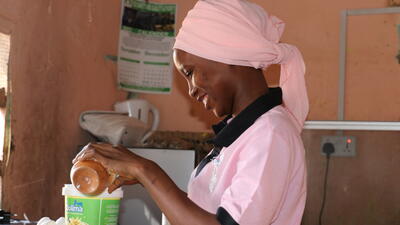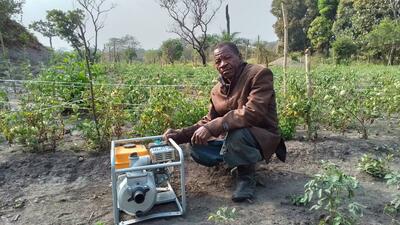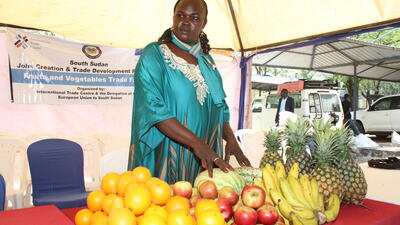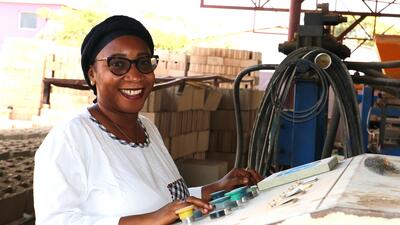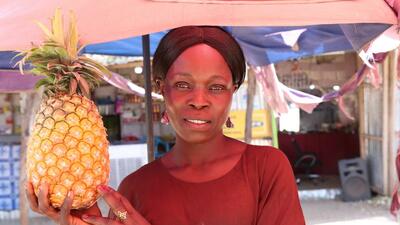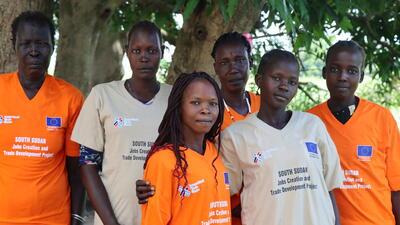
Closing the Gender gap through financial inclusion
ITC and International Islamic Trade Finance Corporation to support women’s financial inclusion
The International Trade Centre (ITC) and the International Islamic Trade Finance Corporation (ITFC) hosted a joint event at Dubai Expo 2020 in March 2022 to explore possible solutions for closing the gap in access to finance for women entrepreneurs in developing countries.
Celebrating International Women’s Day, a diverse and gender-balanced panel of experts, moderated by international presenter Sally Mousa, discussed the financing gap experienced by women, identified the constraints and solutions to overcome existing barriers to ease their access to capital, and explored some of the latest initiatives including their impact on access to finance.
In her opening remarks, Pamela Coke-Hamilton, Executive Director of the International Trade Centre (ITC) said that investing in women is essential to supporting global recovery efforts. “According to the International Finance Corporation, more than 70% of women-owned small businesses do not have access to financial services, and the existing gender capital gap is estimated to be $300 billion,” she said.
To narrow the gender gap, ITC launched the SheTrades Invest programme, dedicated to unlocking finance for women in developing and least developed countries. ITC also recently joined forces with CARE and Bamboo Capital providers for the CARE – SheTrades Impact Fund, a gender-lens investing fund targeting early- to growth-stage companies.
“Over 50% of women in developing countries seek entrepreneurship as a path to a better future, compared to about 25% in high income countries,” said Iva Hamel, World Bank Resident Representative to the United Arab Emirates.
For this reason, several initiatives to support women’s access to finance were launched, such as the Women Entrepreneurs Finance Initiative (We-Fi) managed by the World Bank, that scales up women’s access to financial products and services, builds capacity, offers networks and mentors, and provides opportunities to link to domestic and global markets.
As part of its Strategy 2030 to facilitate integrated solution in line with women financing needs, Mr. Ould Tah, Director General of the Arab Bank for the Economic development of Africa (BADEA) indicated that the Bank increased collaboration with major African financing institutions and African Guaranty Funds to provide complete solutions for women and youth access to finance.
Eng. Hani Sonbol, CEO of the International Islamic Trade Finance Corporation (ITFC), insisted on the necessity to adopt a holistic and integrated approach and business-friendly regulatory and policy frameworks to ensure the success of the financing initiatives and overcome constraints women entrepreneurs are facing. In this regard, one of ITFC’s trade development programs consists of a combination of training to banks on the specific needs of small businesses and SMEs, including those managed by women, to unleash their potential and help them meet financial requirements to access credits.
Douja Gharbi, CEO of RedStart, part of Damya the first Tunisian Women Business Angel Network, emphasized the importance of women personal empowerment and development, such as coaching and mentoring, beyond the sole access to finance. “Access to finance is essential but it is not enough for women running a business. They face so many barriers and need access to mentoring and coaching on how to deal with markets and ensure the success of their business,” she said.
While echoing Douja Gharbi’s position on the importance of women personal development, Amani Asfour, President of the Africa Business Council, added that the African Continental Free Trade Area represents a great opportunity for women. The Africa Business Council’s strategic pillar on product development focuses particularly on women access to continental markets.
In this context, the accelerated digitalization of businesses is essential to create a level playing field for women, while e-commerce is becoming a powerful tool for women’s economic empowerment. Added Eng Hani Sonbol,
In closing the event, Lilia Hachem Naas, Chief of Office for the Middle East and North Africa region at ITC, summarized the key points related to gender gaps in access to finance. She pointed out that activating partnerships across finance institutions, technical assistance institutions and women on the ground remain crucial to closing the gap hindering women from benefiting from economic opportunities. Creating the right ecosystem and friendly environment that facilitate women access to finance will go a long way in supporting their business sustainability and growth, and ultimately achieving the United Nations Sustainable Development Goals.




